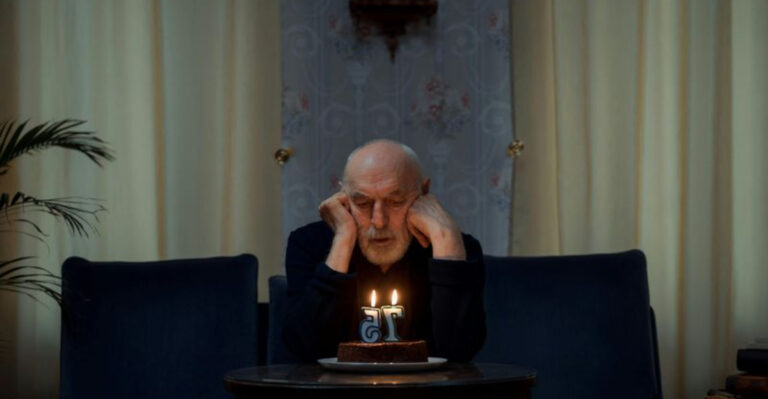15 Things To Say When Your Best Friend Says “I Love You” (and You Don’t Feel the Same Way)
Have you ever been hit with those three words from your best friend—the ones that land like a thunderclap in your chest, because you just don’t feel that way? There’s no script for this moment. Maybe you wished for one, standing there, searching for language that doesn’t sound cruel or fake.
But there you were: heart pounding, mind racing, trying not to make it worse. It’s rough, and if you’re here, you want to get it right. You want to honor what’s real, not fall back on empty clichés or half-truths.
This isn’t about damage control. It’s about honesty, gentleness, and maybe a little bravery—without pretending it’s easy or painless. No one ever taught us how to have this conversation. So, you and me—we need to talk. Real words for a real mess. Here’s how you could answer, one human to another.
1. “You’re braver than you know for telling me this.”

Admit it: You never saw this coming. You always figured you’d be the first to trip over your feelings, not him. Suddenly everything feels fragile, but you can’t help but respect how gutsy he is for saying it out loud.
Pausing to acknowledge his courage is more than lip service. Looking him in the eyes, you let him know this moment matters. He didn’t take the easy road—and that alone is worth honoring.
You don’t have to rush past the awkwardness. Letting him know he’s brave takes the shame out of his confession. It sets the tone for honesty and keeps the door open for whatever comes next, even if it’s not romance.
2. “I care about you, but my feelings aren’t the same as yours.”

There’s no elegant way to draw this line, but pretending otherwise just twists the knife. Your voice might wobble, but you refuse to fake it—he deserves more than a half-hearted maybe.
This isn’t about minimizing what you share. You make it clear: your care is real, just different. It’s not less, just not the fireworks he hoped for.
Letting him down, in this weird honest way, is how you honor both your truths. No false hope, no cruelty. Just the reality, as gently as you can give it.
3. “I don’t see our friendship changing, even if you need some space right now.”

Remember those middle school years, where a crush could nuke a whole friend group? You’re not doing retro drama here. You make space for his feelings—literally, if he needs it—but you also make it clear: you’re not about to bail.
He might want to step back, and that’s okay. You’re not threatening him with distance; you’re telling him the foundation is solid, even if he’s wobbly. It’s a kindness that costs you nothing, but means everything.
If he needs time, you give it without resentment. But you let him know: you’re not writing him off. Some friendships really can weather the weirdest storms.
4. “I’m honored you trust me with your feelings.”

Some people dream of grand gestures; others crave one moment of radical honesty. When your best friend opens up, it’s a rare, raw gift. You’re on the receiving end, and you treat it with care.
You might not love him back, but you don’t trivialize his risk. Tell him straight up—this trust means something to you. You see him, not just his feelings.
On occasion, that’s what people remember most. Not the answer, but the fact that you held their secret like something valuable instead of something to escape.
5. “I want things to be okay between us, even though I know this changes things.”

No one talks about the weird pause after the confession—the suspended moment when nothing feels normal. You don’t reach for easy reassurances. You sit with the awkwardness, naming it instead of pretending it’s not there.
Showing him you’re willing to work through the discomfort is huge. You want things to settle, but you’re not naive—something shifted, and you both feel it.
You let him know you’re committed to making it work, whatever this new normal looks like. It’s not pretending, it’s persistence. Sometimes, just staying in the conversation is the bravest thing you can do.
6. “If you want to talk more, I’m still here. If you need space, that’s okay too.”

It’s a weird limbo: do you talk it out or go silent? You offer him both, like an open door. There’s no pressure. No guilt trip. Just options.
You’re not forcing a fix or demanding a timeline. His pace is his own, and you let him own it without trying to control the outcome.
If he needs you, you’re there. If he needs distance, you can take that hit. Being a friend sometimes means playing the long game, even if it stings for now.
7. “Our friendship means too much to me to fake something romantic.”

It’s tempting, right? To just say you’ll try, even if your stomach twists at the thought. But you know this isn’t a rom-com. You can’t manufacture feelings that aren’t there.
There’s no cruelty in honesty when it’s wrapped in respect. You admit you’d rather protect the friendship than play pretend. You mean it: he’s far too important for games.
This isn’t about ego or fear. It’s about not wanting to lose someone who makes your life better—just in a different way than he hoped.
8. “Thank you for being honest with me. That can’t have been easy.”

It’s easy to get sucked into your own discomfort and forget his. But you name what he did: he crossed a scary line. That’s not nothing.
You thank him, not in the Hallmark card way, but like someone who’s been scared to say big truths before. Your gratitude is real, not rehearsed.
The best way to heal is to honor the risk, not just the outcome. You remind him he was brave, and that you saw it.
9. “I’m not going to lead you on or give you false hope.”

It’s tempting to soften the blow, drop a “maybe someday,” or let things dangle. But that’s not kindness. You know better. You choose clean honesty over a sugar-coated maybe.
It hurts to close the door, but you do it for his sake. You’d rather give him something solid to stand on, not a question mark that lingers.
He might flinch at first. That’s human. But you trust that the long-term kindness is in not letting him hope for something that isn’t coming.
10. “You’re one of my favorite people—I just don’t see us that way.”

This is the sweet spot between compliment and honesty. You name what’s real—you adore him, just not in the way he wants. There’s no shame in being someone’s favorite and still not being their person.
You let the warmth come through. He’s not just another friend; he’s special. You can’t fake sparks, but you can tell him how much he matters, even if the feelings aren’t romantic.
Friendship can run deep and rich, even after this kind of earthquake. In certain moments, being someone’s favorite means more than being someone’s love story.
11. “I don’t want things to get weird between us, but I get it if you need time.”

You say it straight: you hope things won’t turn awkward. You want to keep the easy laughter and inside jokes. But you don’t ignore his reality.
You’re not asking him to snap back to normal overnight. People need time to recalibrate, and you won’t guilt-trip him for it.
The offer is clear: you’re willing to hang in there, no matter how bumpy it gets. He’s worth it, even if the ride is awkward for a while.
12. “Whatever you need, I’m still in this with you.”

This is one of those rare, make-or-break moments. You know the friendship might tilt, but you’re not bailing. You’ll hold him up, even if things get wobbly for a bit.
You don’t offer a fix, because some things just need time. But you do promise presence. You’re not leaving him to figure it out alone.
Support isn’t always about having the perfect words. At times it’s about sticking around for the messy parts.
13. “I hope we can still laugh about dumb things together, even after this.”

You throw a lifeline back to the ordinary—the inside jokes, the shared memes, the weird breakfast rituals. You want him to know that not everything has to be heavy.
You don’t force the laughter, but you let him know you’re open to finding your way back to it. There’s no pressure, just a gentle reminder of what’s worth preserving.
Sometimes, the best medicine is knowing that laughter is still allowed. Even after big, scary confessions, the dumb stuff can still save you both.
14. “I really value what we have, and I hope this isn’t where it ends.”

When something good is at risk, you say so. You don’t bluff or pretend you’re above feeling scared of loss. You tell him straight: you want to keep what you have.
It’s not about denying the awkwardness or pretending there’s no fallout. It’s about fighting for the friendship, even if it looks different than before.
You give him hope—not the romantic kind, but the durable, real kind that keeps people showing up for each other, even when it’s hard.
15. “We’ve been through too much to let this be the end.”

This is the truth: friendships that last are made of scars, not perfection. You remind him—and yourself—of what you’ve already survived together. One confession won’t erase years of history.
You’re not promising an easy fix, but you are drawing a line in the sand. You’ll keep showing up, however tricky it gets.
In the end, some bonds outlast the weirdest chapters. You both get to decide if this is one of them. And you let him know you choose to stay.







